|
The Master of Public Health (MPH) program is a master’s degree program intended to provide academically qualified individuals who are dedicated to enhancing the health status and quality of life all global communities, the basic competent knowledge and creative and critical-thinking ability to improve public health. The MPH program is organized around six core disciplines of public health: Public Health Ethics, Health Policy and Management, Social and Behavioral Sciences, Environmental Health Science, Biostatistics, and Epidemiology. Knowledge and skills in these disciplines equip the graduate to analyze and consider solutions to public health problems at the community, institutional, and societal levels. The course has a discipline-specific competency emphasis on healthcare management, consistent with the interdisciplinary and cross-cutting competencies of the Association of Schools of Public Health (ASPH) model. |
Download the full program pdf file to read more about the 10 values underlying public health
|
| Curriculum | |
| To complete the MPH program, students must satisfy the MPH course curriculum, which requires a minimum of 32 semester credit hours. The MPH program can be completed by either full-time or part-time study, and accordingly, can be completed within one to two years of study (480 clock hours of instruction). |
Compulsory Courses (23 credit hours)
|
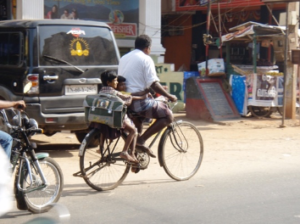
Follow the link to view some example video lectures from many of these courses. ,
|
Elective Courses (select at least 9 credit hours)
|
|
| Required Core Competencies and the Syllabus of Courses are provided in the course description linked pdf file (AUSN-MPH-Description). Further information on Admissions, Scholarships, other Degrees, dissertation titles, the Modality of the Lectures, Credit Transfer, and general information are provided on this website and in the Catalog. Inquiries to provost@ausovereignnations.org |
| Featured alumni from this program | |
| Ms. Endreya M. McCabe, Delaware Nation, USA
Dissertation title: Challenges in the Gay, Lesbian and Transgender Native American Community (Residential program)
|
 |
| Dr. Ahmed Raihan Abir, Canada
Dissertation title:Telemedicine with Digital low-cost ECG to provide basic cardio-care in rural areas: Instrumentation and Ethical Aspects |
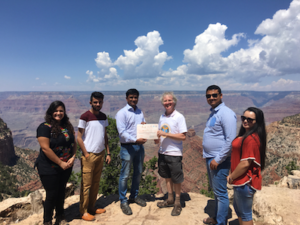 |
| Dr. Rawfun Nahar, Bangladesh
Dissertation title:Estimation of Occupational Hazards and their Prevention among Dental Surgeons in Dhaka City |
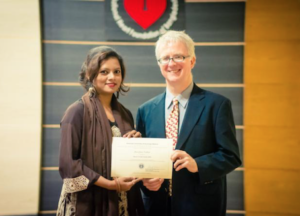 |
| Dr. Md. Anower Hussain Mian, Bangladesh
Dissertation title:Prevalence of Oral and Dental Diseases and Oral Hygiene Practices among Illicit Drug Abusers |
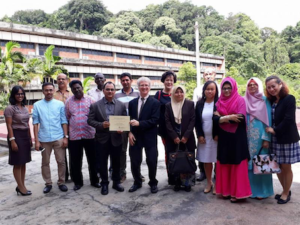 |
| Mr. Rajendra Khadka, Nepal
Dissertation title:Knowledge and Perceptions of HIV and AIDS among higher secondary school students in Dolakha District, Nepal |
 |
| Dr. Shamima Lasker, Bangladesh
Dissertation title:Guidelines for Ethics Review Committee (ERC) for the research involving humans, animals, and the environment |
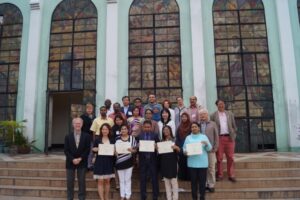 |
| Dr. Leonard Henry Le Blanc III, Thailand
Dissertation title: Lead (Pb): Public Health Hazard - Hazard Containment and Contaminated Land Remediation |
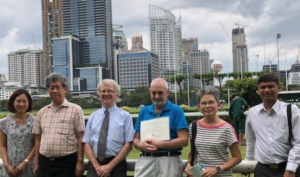 |
| Ms. Trina Mazumder, Bangladesh
Dissertation title:Increasing Awareness of Mental Health for Prevention of Suicide in Bangladesh |
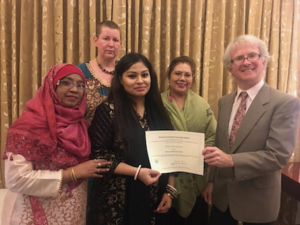 |
| Dr. Md. Rana Parvez, Bangladesh
Dissertation title: Intra– articular steroid and Hyaluronic acid injection is less effective than Platelet-Rich Plasma injection to treatment knee joint osteoarthritis (knee joint pain)? |
 |
| Dr. Naznin Pervin, Bangladesh
Dissertation title: Old home inhabitants in Bangladesh: what physical and mental support do they need and what they truly get |
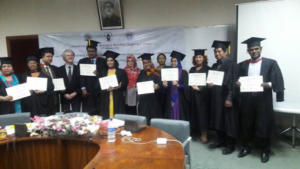 |
| Dr. Osama Rajkhan, Saudi Arabia
Dissertation title: Going out to the Red Sea: Re-aligning conscious experience with nature’s xenobiotic response to boost personal health after 50 years of age. A holistic perspective on aging and nature deficiency syndrome |
 |
| Mr. Tsuyoshi Sotoya, Japan
Dissertation title: Concepts of Human Dignity and Family in Japan |
 |
| Dr. Darryl R.J. Macer, New Zealand
Dissertation title: Legacies of Eugenics, Race and Colonization: Reflections on San Carlos Apache Nation
|
 |